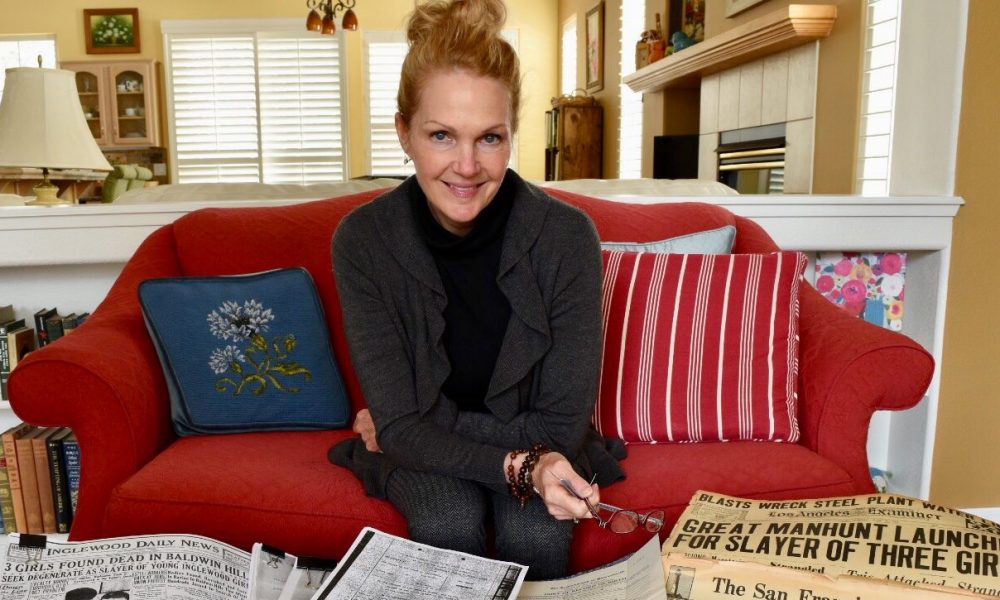

Today we’d like to introduce you to Pamela Everett.
Thanks for sharing your story with us Pamela. So, let’s start at the beginning, and we can move on from there.
My dad and his family – my grandparents, aunts, and uncles – lived in Inglewood in the 1930s. When I was a teenager, many decades later, my dad made a cryptic comment about losing two of his sisters when they were very young, but he couldn’t tell me more, he was too overwrought. A decade later, after he died, I started digging around to learn about this family secret.
Indeed, in 1937 two of his little sisters and one of their young friends were all murdered in what would become one of the most historic criminal cases in LA history. It necessitated one of the first criminal profiles in the country, the killer was the last man to be sentenced to hang in CA (before the gas chamber came into use) and it was the genesis for CA’s first sex offender registration law, which is the model for those laws across the country today.
And also in the process, I discovered all the hallmarks of a wrongful conviction and evidence that CA probably convicted and hung the wrong man. I wrote a book about my experience, about what I learned and the questions I still have. It’s entitled “Little Shoes,” and it was published in May of last year, garnering solid reviews, including one from the New York Times Book Review.
We’re always bombarded by how great it is to pursue your passion, etc. – but we’ve spoken with enough people to know that it’s not always easy. Overall, would you say things have been easy for you?
Researching an 80-year old criminal case was very challenging. I worked closely with several LA agencies, including the LA Public Library, the DA’s and Public Defender’s offices, and the California State Archives.
Larry Harnisch from the LA Times was another incredible resource for me, sharing Times’ archives from the case. Everyone was incredibly helpful as I tried to piece together information from all those years ago.
We’d love to hear more about what you do.
I’m just a lowly author who happened to have an amazing story in her family. I’m also a volunteer attorney for the California Innocence Project, which operates out of the California Western Law School in San Diego. I live in Reno, where I’m a professor.
What were you like growing up?
I grew up in Gardena and loved the whole South Bay experience – I was a classic surfer girl (I didn’t surf, but I looked the part, as we all did – bleached blonde hair, puka shells (OMG!), and all the rest.
I spent most of my childhood at Hermosa and Redonda Beaches, just playing in the sand and waves all day long with other kids from my neighborhood. I never needed much to be entertained – the ocean was enough.
As I got older, I still hung out at the beach with friends. To this day, the sound of the ocean brings back so many memories of my life in LA.
Pricing:
- My book is available everywhere – local bookstores first! $23.95
Contact Info:

Albert Dyer After Confessing, Los Angeles Hall of Justice, July 5, 1937. Los Angeles Daily News Negatives (Collection 1387). Library Special Collections, Charles E. Young Research Library, UCLA.

Albert Dyer Murder Trial, Los Angeles Hall of Justice, August 1937. Los Angeles Daily News Negatives (Collection 1387). Library Special Collections, Charles E. Young Research Library, UCLA.

Questioning of suspect Luther Dow at the Los Angeles District Attorney’s Office, June 30, 1937. Left side of table: Deputy District Attorney Tom Covett and Deputy District Attorney Eugene Williams. Right side of table: Marvin Hardige and Luther Dow. Herald-Examiner Collection/ Los Angeles Public Library.

Spectators wait outside the courtroom before the first day of Albert Dyer’s trial, August 6, 1937. Herald-Examiner Collection/ Los Angeles Public Library.

Getting in touch: VoyageLA is built on recommendations from the community; it’s how we uncover hidden gems, so if you know someone who deserves recognition please let us know here.



















